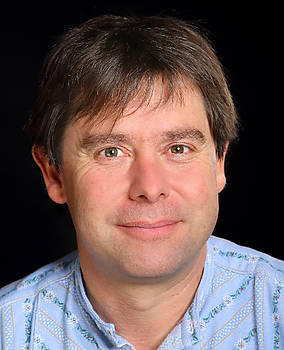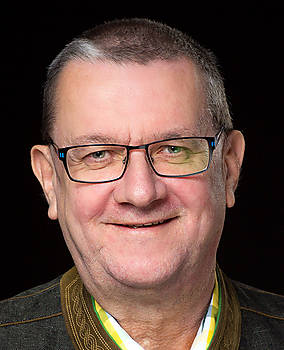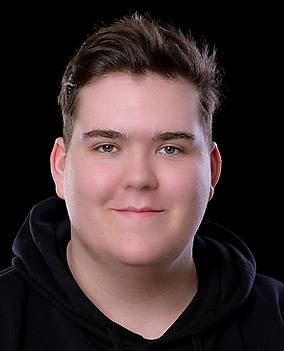Reservoir Engineering
Achieving a sustainable energy future is a major present-day challenge in which fossil fuels are predicted to play a dominant role over decades. In order to address a sustainable energy supply, developments and targets in the areas of renewable energies and fossil fuels must be coupled and balanced.
Reservoir Engineering is a key discipline to drive advances in subsurface technologies in order to improve the balance between energy production and environment impact through R&D.
In this context, the Reservoir Engineering Group aims to provide best possible education, to further develop the field of reservoir engineering and to tackle the energy-supply challenge and related topics by cooperating with the public sector and energy companies. We focus on economically feasible and environmentally friendly hydrocarbon recovery methods, gas injection for energy storage (power-to-gas) and sequestration (CCS).
Engineering future energy!

Reservoir Engineering
DGE
Research
CO2 Sequestration
Due to the growing global demand for energy and the relatively slow transition to sustainable energy sources, the combustion of carbon-based fuels will remain the world’s major energy source for the coming decades. In order to achieve climate targets, transition technologies are required to reduce CO2 emissions during this period. Carbon Capture and Storage (CCS) is such a technology with a high potential to reduce greenhouse-gas emissions, and potentially even achieve a negative CO2 footprint. Research in the area of subsurface storage is typically focused on storage capacity and storage safety.
In this context, a currently ongoing PhD project is focused on the coupling of flow and geomechanics. The final goal is to model CO2 injection in fractured reservoirs with pre-existing faults and to estimate the effect of mechanics on flow and on storage capacity as well as estimating the risk of leakage and fault activation.
Despite the challenges and ongoing R&D, current knowledge and capabilities are sufficient to already identify safe subsurface containers in which CO2 can safely be stored. In particular, depleted gas fields and sandstone reservoirs are promising candidates for storage operations. But even in such cases, an elaborate effort of reservoir characterization and reservoir engineering is needed to guarantee safe storage and to optimize injection performance and storage capacity. Further R&D is focused on carbonate reservoirs. Those are more complex due to their multi-scale structural heterogeneities. Also the high reaction rate of carbonates with carbonic acid raises some challenges for predictive reservoir modeling and is hence a rich playground for research.
Decarbonization and Energy Transitioning
The Intergovernmental Panel on Climate Change (IPCC, WG III, 2014) presents a series of energy and climate scenarios covering potential future pathways ranging from “very optimistic” to “business as usual,” including all the consequences for the environment and society. Even in the most favorable scenario (RCP 2.6) that allows mankind to maintain global warming below 2 °C, it is predicted that at the end of the 21st century, the total energy consumption will be higher than today with more than 50 % of fossil fuels in the primary energy mix. Among other measures, this scenario requires a wise selection of the fossil fuel types being developed in view of energy efficiency and the CO2 footprint of hydrocarbon production. Furthermore, a wide application of carbon capture and storage (CCS) will be required to mitigate greenhouse gas emissions associated with fossil fuel combustion and production.
The Chair of Reservoir Engineering is contributing to creating a sustainable energy future with research that may be categorized by: (a) subsurface hydrogen storage and conversion for large-scale renewable energy storage, (b) decarbonization by geological CO2 storage, and (c) understanding energy transitioning by arts-based research.
Digitalization
Reservoir engineering has long been digital. With today's computing power, it is possible to run simulations to significantly reduce and capture uncertainties that go beyond previous capabilities. This project is based on the implementation of new technologies from the pore to the field scale.
With the help of Digital Rock Physics (DRP), multiphase-flow parameters are being simulated that would otherwise need to be measured with great effort on a selected sample set that may not be statistically representative. DRP also allows multiphase flow to be directly simulated on digital twins from the m-CT (micro computed tomography) images, and highly complex geological models can be equipped with the results. Uncertainties can systematically be addressed, which paves the way for stochastic reservoir modeling and puts corresponding predictions in a correct statistical light. Moreover, the project is striving for a consistent integration of parameters from digital rock physics and special core analysis in a stochastic reservoir modeling workflow.
Enhanced Recovery
A major part of the conventional oil reserves cannot be recovered by primary and secondary recovery methods. This unrecovered oil is the target of Enhanced Oil Recovery methods (EOR) that have been developed to extract more oil from mature fields and enhancing recovery. However, EOR is typically expensive and is applied at a high oil price.
Our aim is to establish the necessary numerical and experimental tools to better understand EOR processes on multiple scales (pore to field), to be able to develop cost-competitive options tailored to individual fields. The focus areas will be on water-based techniques, such as alkaline and low-salinity water flooding, and on CO2 EOR.
In addition to developments in the Vienna Basin, fracture-carbonate fields in the Middle East are prospective targets of the chair. There are two ongoing projects that deal with two major fields in the region. Technologies related to the exploration, production, and improving recovery from carbonate reservoirs are screened and developed. The main emphasis is on optimizing tertiary recovery by considering different EOR mechanisms in reservoir simulations and laboratory measurements. Based on field data, the project delivers the necessary elements for the design of EOR pilots.
- Reservoir Characterization: The Effect of Natural Fractures on Production Data
- EmulPore
- Technology Development Roadmap for Carbonate Reservoir Exploration and Production
- Chemical Interaction of Xanthan Polymers in Porous Media by Micromodel and Coreflooding
- Lab on a Chip for Optimizing EOR Fluids
- Explicit Continuum-Scale Modeling for Low Salinity Water Flooding
Geological Hydrogen Storage
Hydrogen is a very valuable source of energy. It can be produced from – e.g. – a surplus of renewable energy production or from heavy-oil production through upgrading. However, the production of large amounts of hydrogen needs the respective storage capacity to meet the demand. This is what we are working on.
The Reservoir Engineering group participates in a pilot project assessing the feasibility of large-scale hydrogen storage in a former gas field in Upper Austria (which should not be confused with – e.g. – the more developed small-scale hydrogen storage devices for – e.g. – transport applications). The target is the temporary surplus of wind and solar energy, which demands for storage capacity in order to cover for seasonal fluctuations of renewable energy production (www.underground-sun-storage.at).
We work on the chemical interaction between the injected hydrogen, the formation rock and the fluids in place. The target is to predict the stability of hydrogen in the reservoir as compared to the intended time scale of storage, which defines the purity and the value of the back-produced gas.
Improved and Enhanced Oil Recovery
A major part of the conventional oil reserves cannot be recovered by primary and secondary recovery methods. Tertiary processes or Enhanced Oil Recovery methods (EOR) have been developed to extract more oil from mature fields and enhancing recovery. However, EOR is typically expensive and is applied at high oil price.
Our aim is to establish the necessary numerical and experimental tools to better understand EOR processes on multiple scales (pore to field) in order to be able to develop low-cost options tailored to individual fields. The focus areas will be on water-based techniques such as alkaline and low-salinity water flooding and on CO2 EOR.
Faculty
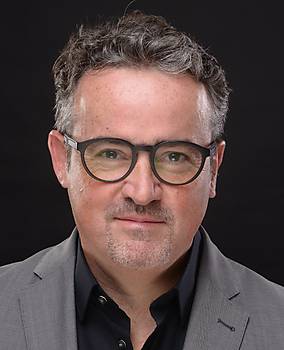
Univ.-Prof. Dipl.-Phys. Dr.rer.nat.
Holger Ott
Head of Department and Chair, University Professor
Reservoir Engineering
Education
- Habilitation (Dr. habil.), Geological Institute, RWTH Aachen University, Germany – Venia Legendi in Applied Geosciences 2015
- PhD in Physics (Dr. rer. nat.), Freie Universität Berlin, Germany 2004
- Diploma in Physics (Dipl.-Phys.), Freie Universität Berlin, Germany 1999
- Apprenticeship diploma as Instrument Mechanic, Kautt&Bux KG, Stuttgart, Germany 1988
Experience
- Head of Department Petroleum Engineering since 2019
- Head of Chair of Reservoir Engineering since 2016
- Privatdozent (Associate Professor) at RWTH Aachen University, Germany since 2015
- Reader (honorary) at the Department of Earth Science & Engineering, Imperial College London, United Kingdom 2011-2016
- Senior Scientist at Shell Exploration & Production and Shell Global Solutions International B.V., Rijswijk/Amsterdam, The Netherlands 2006-2015
- Doctoral and Postdoctoral Researcher at Berlin University, Germany, University of Tokyo, Japan and University of Cologne, Germany with focus on solid state physics 1999-2006
Research Interests
- Fluid dynamics and reactive transport in porous media in particular on the pore scale and upscaling.
- Imaging of fluid and solute transport in porous media.
- Development of low-cost enhanced and improved oil recovery methods (IOR/EOR) tailored to regions and operations.
- Subsurface energy and waste storage such as large-scale hydrogen storage from excess renewable energy, and subsurface carbon storage for mitigation of greenhouse gas emissions.
- Former research activities: low dimensional magnetism and coupling of magnetic and electronic structures in correlated and uncorrelated electron systems.
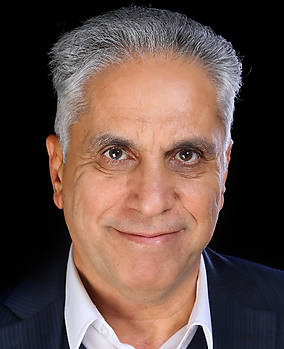
Univ.-Prof. PhD
Riyaz Kharrat
University Professor for Carbonate Reservoir Engineering
Reservoir Engineering
Education
- PhD Chemical Engineering, Enhanced Oil Recovery, University of Kansas, U.S.A. 1989
- MSc Chemical Engineering, Thermal Oil Recovery, University of Kansas, U.S.A. 1984
- BSc Chemical Engineering, University of Kansas, U.S.A. 1981
Experience
- Kish Petroleum Engineering Tehran Iran – Project Manager of several offshore and onshore Iranian oil and gas fields 2012-2017
- Petroiran Development Company Tehran Iran – Consultant 2006-2011
- Petran Research Company Tehran Iran, Senior Reservoir Engineer 2000-2006
- Professor Petroleum University of Technology, Petroleum Department 1990-2017
- Instructor, Department of Mathematics, University of Kansas, U.S.A. 1987-1990
- Research Assistant, Tertiary Oil Recovery Project, University of Kansas, U.S.A. 1984-1987
Research Interests
Improved Oil Recovery (IOR), Enhanced Oil Recovery (EOR), Reservoir Modelling & Simulation, and Wax & Asphaltene studies.
Numerous production mechanisms and harsh reservoir conditions make the available EOR and most chemicals used for conventional reservoirs not to be suitable for naturally carbonated fractured reservoirs. Hence better reservoir characterization and proper selection and design of the injection fluids requires more attention. In my research, I was able to visualize and identify these mechanisms through designed experimental and modeling techniques. Processes such as GAGD, VAPEX, SAGD, TAGD, etc. were investigated thoroughly with the main focusing on understanding and quantifying EOR mechanisms for NCFR.
Scientific Staff
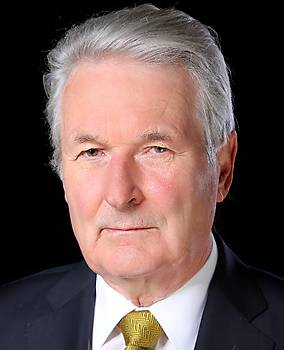
Dipl.-Ing. Dr. mont.
Heimo Anton
Honorary Professor
Reservoir Engineering
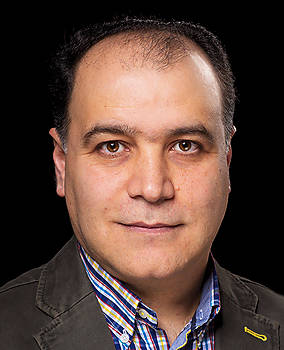
PhD
Siroos Azizmohammadi
Senior Lecturer
Reservoir Engineering
Education
- Postdoctoral Research Fellow, Montanuniversität Leoben, Austria 2009-2012
- PhD Chemical Engineering, Tehran Polytechnic, Iran 2005
- MS Chemical Engineering, Tehran Polytechnic, Iran 1996
- BS Chemical Engineering, Tehran Polytechnic, Iran 1993
Experience
- Senior Lecturer, Montanuniversität Leoben, Austria since 2015
- Senior Researcher, Montanuniversität Leoben, Austria 2012-2015
- Senior Advisor, Petropars Oil and Gas Institute (POGI), Tehran, Iran 2008-2009
- Lecturer, Tehran Polytechnic, Iran 2006-2007
- Senior Reservoir Engineer, Iranian Offshore Oil Company (IOOC), Tehran, Iran 2005-2009
- Reservoir Engineer, Iranian Offshore Oil Company (IOOC), Tehran, Iran 2000-2005
Research Interests
My research interests are mainly focused on different aspects of “upscaling”, which is my most favorite topic. Following are research topics and projects that I have been working over the past few years:
- Two-phase flow upscaling
- Efficient upscaling method for naturally fractured reservoirs (NFRs)
- Smart upscaling technique for structured/unstructured grids
- Modeling and analysis of multiscale phenomena in porous media
- Underground Hydrogen Storage (UHS)
- Reactive transport modeling
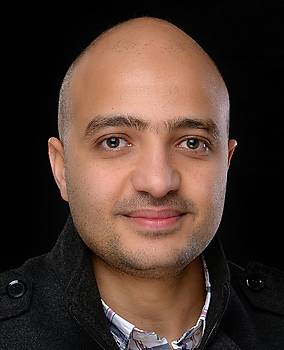
Dipl.-Ing.
Mohab Abdellatif
Research Associate
Reservoir Engineering
Education
- PhD Candidate, Underground Hydrogen Storage, Montanuniversität Leoben since 2023
- MSc, Petroleum and Geothermal Energy Recovery, Montanuniversität Leoben 2019-2020
- BSc, Petroleum Engineering, Reservoir Engineering, University of Suez, Suez, Egypt 2011-2016
Experience
- Research Associate, Montanuniversität Leoben, Austria since 2023
- “With Study Break” Reservoir Engineer, ENI, Egypt 2018-2022
- Drilling Engineer, PetroDrilling, Egypt 2017-2018
Research Interests
- Underground Hydrogen Storage Characterization
- Hydrogen geochemical reactivity modeling
- Bio-reactive transport modeling
- Subsurface energy storage
- Waste energy utilization
- Reservoir integrated asset modeling
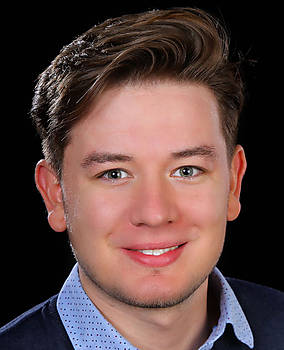
Dipl.-Ing.
Patrick Jasek
Research Associate
Reservoir Engineering
Education
- PhD Candidate, Reservoir Engineering, Montanuniversity Leoben since 2020
- MSc. Petroleum and Geothermal Energy Recovery, Montanuniversity Leoben 2019-2020
- BSc. Petroleum Engineering, Montanuniversity Leoben 2014-2019
- Higher Federal Institute for Experimental Chemistry, HBLVA Rosensteingasse, Vienna 2008-2013
Experience
- Research Associate, Chair of Reservoir Engineering, Montanuniversität Leoben, Austria since 2020
- Production Engineer, Erdwerk GmbH, Munich, Germany 2020
- Research Associate, Virtual Flow Metering, Leoben, Austria 2019-2020
- SEG Evolve Graduate, San Antonio, Texas, USA 2018-2019
- Orlen Upstream, Flow Assurance, Warsaw, Poland 2017
Research Interests
- Carbon Capture Utilization and Storage
- Geothermal Energy Recovery and Utilization
- Hydrogen Storage and Mobility
- Hydro- and Geochemistry
- Power to Gas Technologies
- Subsurface Engineering
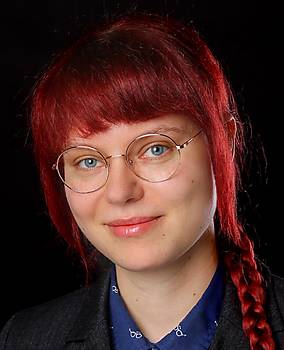
Dipl.-Ing.
Bianca Brandstätter
University Assistant
Reservoir Engineering
Education
- PhD candidate Reservoir Engineering, Montanuniversität Leoben since 2021
- MSc International Study Program in Petroleum Engineering, Reservoir Engineering, Montanuniversität Leoben 2020-2021
- BSc International Study Program in Petroleum Engineering, Montanuniversität Leoben 2013-2020
Experience
- University Assistant, Chair of Reservoir Engineering, Montanuniversität Leoben since 2021
- Student Assistant, Chair of Reservoir Engineering, Montanuniversität Leoben 2020-2021
Research Interests
- Fluid Transport in Porous Media
- Enhanced Oil Recovery
- Investigation of displacement processes via Micro-CT
- Microemulsions
- Microfluidics
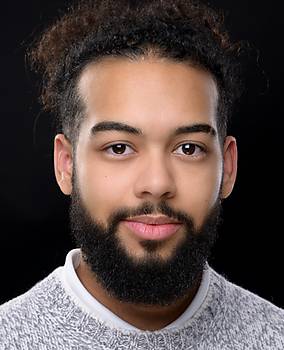
Dipl.-Ing., BSc
Justin Anthony Fink
University Assistant
Reservoir Engineering
Education
- PhD Candidate, Montanuniversität Leoben, Austria since 2024
- MSc, Geoenergy Engineering, Montanuniversität Leoben, Austria 2023-2024
- BSc, Petroleum Engineering, Montanuniversität Leoben, Austria 2019-2024
Experience
- University Assistant, Montanuniversität Leoben, Austria since 2024
- CEO, Circular Carbon Technologies, Austria since 2023
- Internship Automation Technology, OMV Subsurface Technologies, Austria 2022
- Student Assistant, Chair of Reservoir Engineering / OMV, Montanuniversität Leoben, Austria 2022-2024
Research Interests
- Carbon Capture Utilization and Storage (CCUS)
- Subsurface Energy Storage and Recovery
- Energy Landscape Modeling and Network Design
- Fluid Flow and reactive Transport in Porous Media
- Digital Rock Physics
- Machine Learning
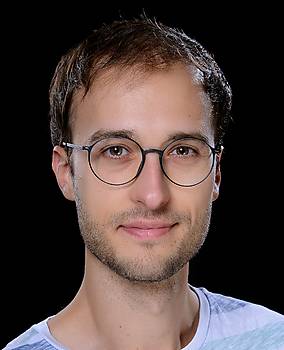
Dipl.-Ing.
Jakob Kulich
University Assistant
Reservoir Engineering
Education
- PhD candidate, Reservoir Engineering, Montanuniversität Leoben since 2022
- BSc/MSc Applied Geosciences/Applied Geophysics, Montanuniversität Leoben 2013-2019
Experience
- Geophysicist, Geological Survey of Austria since 2019
- Research Associate, Chair of Applied Geophysics, Montanuniversität Leoben 2019
Research Interests
- Carbon Capture Utilization and Storage
- Geothermal Energy Recovery and Utilization
- Underground Thermal Energy Storage
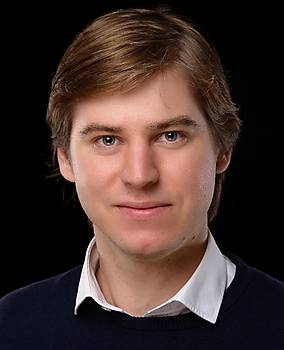
Dipl.-Ing.
Christoph Scherounigg
University Assistant
Reservoir Engineering
Education
- MSc Geoenergy Engineering, Montanuniversität Leoben, Austria since 2022
- BSc Petroleum Engineering, Montanuniversität Leoben, Austria 2015-2022
Experience
- PhD Student, Chair of Reservoir Engineering, Montanuniversität Leoben, Austria 2023-2024
- Owner, AuraCode e.U., Austria 2022-2024
- Internship Well Services, ExxonMobil Production Deutschland GmbH, Hannover, Germany 2019
- Internship Project Management, OMV Austria Exploration and Production GmbH, Gänserndorf, Austria 2018
- Development Engineer, AVL List GmbH, Graz, Austria 2018-2023
- Student Assistant, Chair of Mathematics and Statistics, Montanuniversität Leoben, Austria 2018-2023
Research Interests
-
In-situ Hydrogen Production and Carbon Sequestration
-
Geothermal Energy Recovery
-
Fluid Transport in Porous Media
-
IoT Technology and Network Design
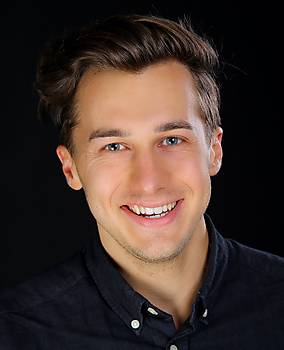
Dipl.-Ing.
Gerald Stiedl
University Assistant
Reservoir Engineering
Education
- PhD Candidate, Reservoir Engineering, Montanuniversität Leoben since 2021
- MSc Materials Science, Montanuniversität Leoben 2019-2021
- BSc Materials Science, Montanuniversität Leoben 2014-2019
- Higher Federal Institute for Experimental Chemistry, HBLVA Rosensteingasse, Vienna 2008-2013
Experience
- University Assistant, Chair of Reservoir Engineering, Montanuniversität Leoben since 2021
- Student Assistant, Chair of General and Analytical Chemistry, Montanuniversität Leoben 2018-2021
- Summer Internship, Material and process analysis, BMW Motoren, Steyr, Austria 2017
- Technology, Research & Development, voestalpine BÖHLER Aerospace, Kapfenberg, Austria 2017-2018
- Summer Internship, Well Service, RAG Austria AG, Ried i.I., Austria 2016
Research Interests
- Hydrogen storage and mobility
- Power-to-gas technologies
- Investigation of displacement processes via CT scanning
- Fluid transport in porous media
- Carbon capture utilization and storage
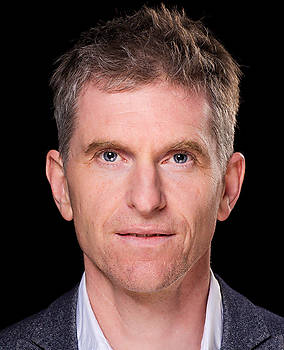
Univ.-Prof. Dipl.-Ing. Dr.mont.
Leonhard Ganzer
Visiting Professor
Reservoir Engineering
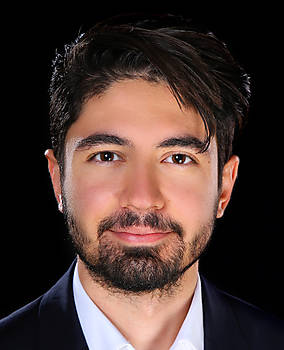
Dipl.-Ing.
Omidreza Amrollahi
Visiting Lecturer
Reservoir Engineering
Education
- PhD in Reservoir Engineering, Montanuniversität Leoben 2020-2023
- MSc International Study Program in Petroleum Engineering, Reservoir Engineering, Montanuniversität Leoben 2018-2020
- BSc Petroleum Engineering, Amirkabir University of Tehran, Iran 2014-2018
Experience
- University Assistant, Montanuniversität Leoben since 2020
- Master Thesis, OMV and Montanuniversität Leoben 2020
- Summer Internship, Reservoir Engineering, OMV Tunisia 2019
- Summer Internship, Drilling Engineering, NIDC, Iran 2017
- Drilling Optimization Engineer (Part-time), ZDOC, Iran 2017-2018
Research Interests
- Fluid Transport in Porous Media
- Pore Network Modeling
- Digital Rock Physics
- Displacement Processes Using CT Scanning
- Enhanced Oil Recovery
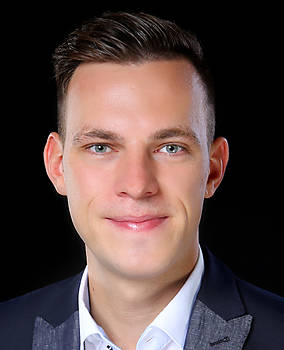
Dipl.-Ing.
Pit Arnold
Visiting Lecturer
Reservoir Engineering
Education
- PhD candidate Reservoir Engineering, Montanuniversität Leoben since 2018
- MSc International Study Program in Petroleum Engineering, Reservoir Engineering, Montanuniversität Leoben 2017-2018
- BSc International Study Program in Petroleum Engineering, Montanuniversität Leoben 0-2017
Experience
- Master Thesis, OMV and Montanuniversität Leoben 2018
- Research Associate and teaching assistant, Montanuniversität Leoben since 2017
Research Interests
- Investigation of rock-fluid and fluid-fluid properties under varying conditions
- Microemulsion formation in the reservoir during EOR processes
- Analysis of Microemulsions
- Investigation of displacement processes using CT scanning
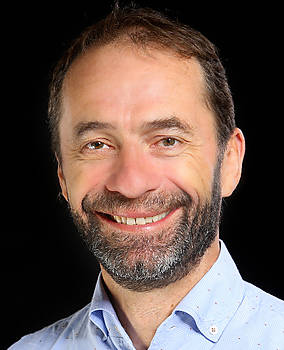
PhD
Thomas Finkbeiner
Visiting Lecturer
Reservoir Engineering
Education
- PhD Geophysics, Stanford University 1998
- MSc Geophysics, Stanford University 1994
Experience
- Research Professor, Ali Al-Naimi Petroleum Engineering Research Center, King Abdullah University of Science and Technology since 2016
- Senior Geomechanics Expert, OMV E&P 2013-2015
- Global Geomechanics Advisor, Baker Hughes Reservoir Development Services 2009-2013
- Director Europe-Africa-Middle East, GeoMechanics International, Inc. 1998-2008
Research Interests
- Mechanical response of reservoirs to pore pressure changes in fields/reservoirs (i.e., injection, stimulation, or depletion) and how this impacts fluid flow (e.g., production).
- Monitoring, laboratory testing, as well as numerical modeling to improve understanding and enhanced predictive capabilities for above phenomena for a variety of reservoir types such as fractured reservoirs (in particular carbonates), unconventional reservoirs, and so-called brown fields (that are produced using improved and enhanced recovery methods).
- Wellbore stability (i.e., mechanical integrity of boreholes both during drilling and production/injection) and real-time data acquisition including risk mitigation.
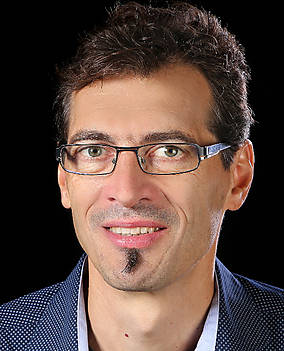
Dipl.-Ing. Dr.mont.
Wilfried Gruber
Visiting Lecturer
Reservoir Engineering
Education
- PhD Geology, Montanuniversität Leoben, Austria since 2003
- MSc Applied Geosciences, Geophysics, Montanuniversität Leoben, Austria since 1998
Experience
- Lecturer, Montanuniversität Leoben, Austria since 2013
- Principal Geoscientist, HOT Engineering GmbH, Austria since 2005
- Geophysicist, Joanneum Research, Austria 1999-2005
- Research Associate, Department of Geology, Montanuniversität Leoben, Austria 1997-1999
Research Interests
All aspects of reservoir characterization and modeling
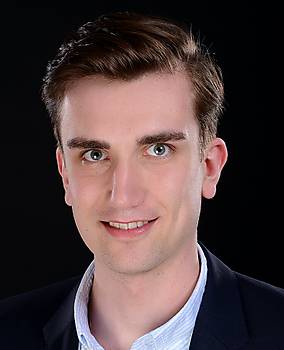
Dipl.-Ing.
Boris Jammernegg
Visiting Lecturer
Reservoir Engineering
Education
- PhD in Reservoir Engineering, Montanuniversität Leoben 2020-2024
- MSc International Study Program in Petroleum Engineering - Geothermal Engineering, Montanuniversität Leoben 2019-2020
- BSc International Study Program in Petroleum Engineering, Montanuniversität Leoben 2012-2019
Experience
- University Assistant, Chair of Reservoir Engineering, Montanuniversität Leoben since 2020
- Student Assistant, Chair of Applied Mathematics, Montanuniversität Leoben 2015-2016
Research Interests
- Subsurface engineering
- Carbon capture storage and utilization
- Investigation of displacement processes via CT scanning
- Hydrogen storage and Power-to-Gas technologies
- Geothermal engineering
- Fluid flow and transport in porous media
Staff
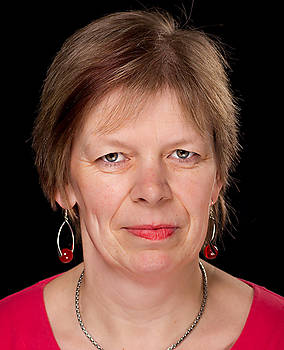
Bettina Matzer
Office Manager
Reservoir Engineering
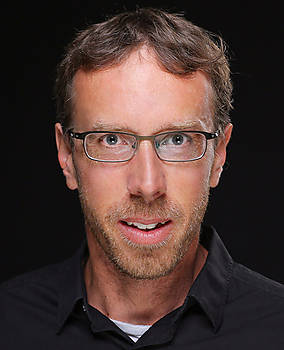
Ing.
Michael Koopmans
Technician
Reservoir Engineering
